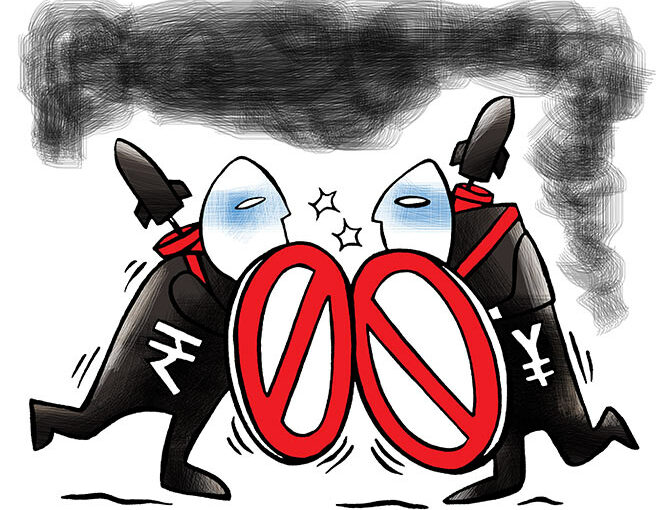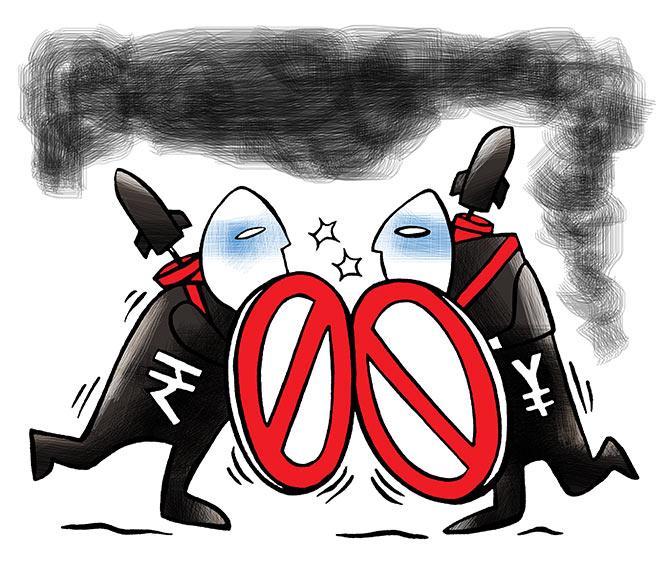India and China have mostly set aside their bilateral differences in order to champion the cause of developing countries at the World Trade Organisation (WTO).
That seems to be changing.
During the latest round of China’s trade policy review, India questioned its northern neighbour’s claim that it was a developing country, since, going by the World Bank’s definition, its per capita income belongs to that of an upper middle income country.
“As per the per capita income level, the Chinese economy belongs to ‘upper-middle income’.
“How can China still claim to be a developing country?
“What are the indicators which China is using to claim such a status?” India asked.
According to the World Bank, countries with a per capita income of $4,096 to $12,695 are upper middle income countries, and China’s per capita income in 2020 stood at $10,435.
Nations with a per capita income of $12,696 or more, such as the United States ($63,413), are considered high income countries.
India, with a per capita income of $1928, belongs to the group of low middle income countries.
All WTO agreements contain special provisions for developing countries, including longer periods to implement agreements and commitments, handle disputes and implement technical standards.
Lately, the US has been demanding that countries like China and India should voluntarily give up the benefits given to developing countries at the WTO, on account of their rapid economic progress.
However, both India and China have opposed such a move.
This time round, though, India has questioned China’s claim that it is a developing country.
China said in its reply that the concept of developing countries is relative to developed countries, and international organisations do not have a unified definition of developing countries.
“However, on the whole, compared with developed countries, developing countries lag far behind in economic strength, per capita income, economic structure, industrial competitiveness, social security system, environmental protection and the ability to participate in global governance.
“And China is clearly ill-equipped for scientific and technological innovation.
“Taken together, the objective fact that China remains a developing country is unassailable…
“China’s international status as the world’s largest developing country has not changed,” it said.
Owing to the lack of proper definitions, WTO members themselves declare whether they are “developed” or “developing” countries.
However, members can challenge each other’s declared status.
Needless to say, a member describing itself as a developing country can make use of the advantageous provisions available to such countries.
Apart from India, Brazil, Indonesia and the European Union have also questioned China’s developing country status.
Replying to the EU, China said that though its economic and social development has made great progress after decades of reforms, the problem of unbalanced and inadequate development remains, and the contradictions between industrial structure, urban-rural gap, social welfare and environmental issues are still prominent.
“China is still the largest developing country in the world.
“As a large and responsible developing country, China has always undertaken obligations that are consistent with its own level of economic development and capabilities,” it said.
India also asked China to explain its shift “from a stage of high-speed growth to a stage of high-quality development” as it has claimed.
China replied that ‘high-quality development’ is an embodiment of the new development concept, where innovation becomes the first driving force.
“Entering the stage of high-quality development, the main characteristics of China’s economic development are: shifts from high-speed to medium-high speed in economic growth, from pursuit of scale and speed to quality and efficiency in economic development, from a focus on capacity increase to a balance between adjusting existing resources and optimising additional resources,” China said.
Source: Read Full Article

